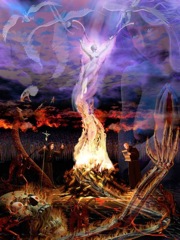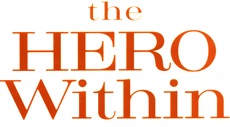Character
From Nordan Symposia
Jump to navigationJump to searchEtymology
[ME. caracter(e, a. F. caractere, ad. L. charact{emac}r, a. Gr. instrument for marking or graving, impress, stamp, distinctive mark, distinctive nature, f. to make sharp, cut furrows in, engrave; or perhaps a refashioning of the earlier F. caracte after this. In Eng. it was further assimilated in 16th c. by (fictitious) spelling with ch-. (Wyclif used both caracte and caracter; he may have taken the latter directly from Latin, as Littré cites F. caractère only from 15th c. In 16-17th c. often cha{sm}racter.]
Meanings
I. Literal senses.
- 1. a. A distinctive mark impressed, engraved, or otherwise formed; a brand, stamp.
- b. fig. with distinct reference to the literal sense.
- 2. A distinctive significant mark of any kind; a graphic sign or symbol.
- 3. a. esp. A graphic symbol standing for a sound, syllable, or notion, used in writing or in printing; one of the simple elements of a written language; e.g. a letter of the alphabet.
- b. spec. in pl. Shorthand. Obs.
- c. Computers. One of a set of letters, digits, or other symbols which can be read, stored, or written by a computer and used to denote data; also, a representation of such a symbol by means of a small number of bits, holes in punched tape, etc., arranged according to a specified code and taken as a unit of storage.
- 4. collect. a. gen. Writing, printing.
- b. The series of alphabetic signs, or elementary symbols, peculiar to any language; a set of letters.
- c. The style of writing peculiar to any individual; handwriting.
- d. Kind or style of type or printed letter.
- 5. A cabbalistic or magical sign or emblem; the astrological symbol of a planet, etc.; = CHARACT 2.
- 6. gen. A symbol, emblem, figure; an expression or direct representation. Obs.
- 7. A cipher for secret correspondence.
II. Figurative senses.
- 8. a. A distinctive mark, evidence, or token; a feature, trait, characteristic. arch. in gen. use.
- b. now esp. in Natural History. One of the distinguishing features of a species or genus. See also acquired character s.v. ACQUIRED ppl. a. (c).
- 9. The aggregate of the distinctive features of any thing; essential peculiarity; nature, style; sort, kind, description.
- 10. The face or features as betokening moral qualities; personal appearance. Obs.
- 11. The sum of the moral and mental qualities which distinguish an individual or a race, viewed as a homogeneous whole; the individuality impressed by nature and habit on man or nation; mental or moral constitution.
- 12. a. Moral qualities strongly developed or strikingly displayed; distinct or distinguished character; character worth speaking of.
- 13. a. The estimate formed of a person's qualities; reputation: when used without qualifying epithet implying ‘favourable estimate, good repute.’
- b. transf. of things.
- c. by character: by repute or report. in (great) character: in (good) repute. Obs.
- 14. a. A description, delineation, or detailed report of a person's qualities.
- b. transf. of things. Obs.
- c. esp. A formal testimony given by an employer as to the qualities and habits of one that has been in his employ.
- 15. Recognized official rank; status; position assumed or occupied. Now influenced by sense 17.
- 16. a. A person regarded in the abstract as the possessor of specified qualities; a personage, a personality.
- b. colloq. A person, man, fellow (freq. slightly derogatory: cf. sense 18).
- 17. a. A personality invested with distinctive attributes and qualities, by a novelist or dramatist; also, the personality or ‘part’ assumed by an actor on the stage.
- b. in (or out of) character: in (or at variance with) the part assumed; hence gen. in (or out of) harmony, appropriate, fitting.
- 18. colloq. An odd, extraordinary, or eccentric person.
- 19. attrib. or in comb., as character-drawing, -formation, -monger, -study, -trait, etc.; character-building, -forming, -making, -moulding, -reading, -training ns. and adjs.; also character-actor, an actor who specializes in character parts; so character-act v., character-acting, -actress; character assassin, one who destroys the reputation of another person; so character assassination; character comedian, a character-actor specializing in comic roles; character dance, (a) Ballet, a dance which interprets a real or imaginary personality; (b) a characteristic national dance; so character dancer, character dancing; character part, an acting role displaying pronounced or unusual characteristics or peculiarities; character set Computing, a set of letters, digits, and other characters that can be drawn on to represent data, usu. varying according to the hardware involved; character-sketch, a brief description of a person's character; so character-sketching; character string Computing, a linear sequence of characters, esp. stored in or processed by a computer; character-structure, the various traits in a person's character, seen as forming a system in which some are more important than others.
Quotations
- 1859 J. S. MILL-Liberty A person whose desires and impulses are his own are the expression of his own nature, as it has been developed and modified by his own culture is said to have a character. One whose desires and impulses are not his own, has no character, no more than a steam-engine has a character.
- 1934 a Melchizedek-Social Problems of Religion True religion is a meaningful way of living dynamically face to face with the commonplace realities of everyday life. But if religion is to stimulate individual development of character and augment integration of personality, it must not be standardized.[1]
- 1967 Martin L. King, Jr. - "I look to a day when people will not be judged by the color of their skin, but by the content of their character."



